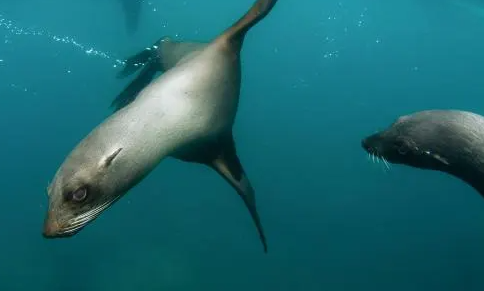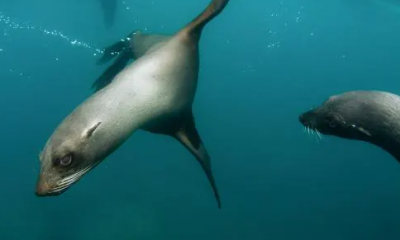The British newspaper "The Guardian" reported that an unprecedented marine heatwave poses a significant risk to marine life off the British and Irish coasts, threatening the death of fish and marine organisms in a serious manner. Data shows that the North Sea and the northern Atlantic Ocean are experiencing temperatures much higher than normal averages. The Met Office stated that global sea surface temperatures in April and May reached their highest levels ever recorded for those months, with June also hitting record heat levels. The U.S. National Oceanic and Atmospheric Administration classified parts of the North Sea as Category 4 marine heatwave, considered "extreme," with areas off the coast of England reaching 5 degrees Celsius above normal.
The Met Office indicated that high temperatures are likely to persist due to the El Niño phenomenon. Daniela Schmidt, a professor of Earth Sciences at the University of Bristol, stated, "The extreme and unprecedented temperatures demonstrate the power of the combination of human-induced warming and natural climate variability, such as El Niño." While marine heatwaves in the Mediterranean are on the rise, such an unusual increase in this part of the North Atlantic has never been seen. It has been linked to North Atlantic climate variability, which requires further understanding to uncover.
Dr. Dan Smale from the Marine Biological Association, who has been studying marine heatwaves for over a decade, expressed surprise at the temperatures. He said, "I always thought it would never have any environmental impact in the cold waters around the UK and Ireland, but this is unprecedented and potentially destructive. Current temperatures are very high but not lethal yet for the majority of species, although they are stressful for many... If they persist through the summer, we could see mass die-offs of kelp, seagrass, fish, and shellfish." He continued, "Heat, just like on land, puts pressure on marine organisms. In other parts of the world, we have witnessed numerous mass die-offs of marine plants and animals due to ocean heatwaves, resulting in estimated losses of hundreds of millions of pounds. As long as we do not significantly reduce emissions, these heatwaves will continue to devastate our ecosystems. However, since this occurs beneath the ocean's surface, it may go unnoticed."
A study conducted in 2019 found that marine heatwaves have become more frequent, with the number of heatwave days tripling in the past two years. The number of heatwave days rose by more than 50 percent over 30 years leading up to 2016, compared to 1925-1954. Scientists at the time stated that the heat had caused seal deaths "like wildfires that devastate vast areas." The damage occurring at these hotspots is also harmful to humanity, which relies on oceans for oxygen, food, storm protection, and the removal of greenhouse gas carbon dioxide from the atmosphere.




